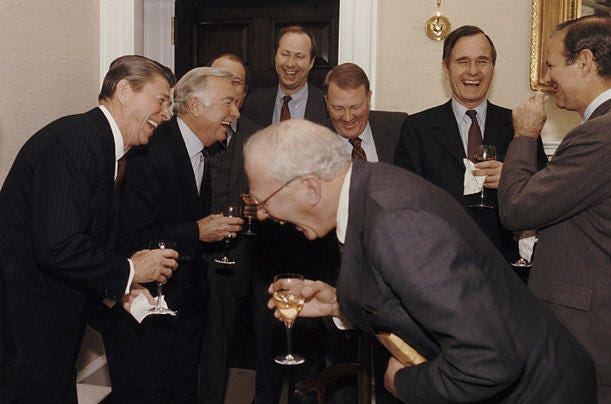Neighborhood Watch
In the push for a multipolar world, will Brazil’s Lula make an unexpected alignment?
“I've learned to appreciate the thinking of John Kennedy.” – Hugo Chavez
In a recent edition of his excellent weekly newsletter, Tree Rings, Luke Gromen quoted widely from F. William Engdahl’s book, A Century of War: Anglo-American Oil Politics and the New World Order. Gromen notes the book’s analysis of the prosperous outcome for London bankers following Britain’s repeal of its Corn Laws in 1846, a development that simultaneously led to decades of domestic deindustrialization and great hardship for common citizens. He makes a parallel assessment of Wall Street’s profitable push since the 1980s to leverage cheap labor abroad that hollowed out the US manufacturing base over the ensuing decades. Gromen also cites Engdahl’s case that the UK provoked World War I in part to prevent Germany from completing a railroad from Berlin to Baghdad. Had it been built, such a route would have allowed Germany to circumvent the power of the British navy, connect its vast manufacturing base to Asian markets, and establish a significant foothold in the oil-rich Middle East.
Sufficiently intrigued, we asked our friend Jeff Bezos if he could spare a copy of the book, to which he had one swiftly overnighted, graciously picking up the tab for shipping. What arrived was a deeply cynical retelling of 20th century history through the unforgiving lens of money and oil. So jarring are some of the claims that one wonders how it is still possible to read them. Among the assertions made or implied by Engdahl are that Henry Kissinger provoked the Yom Kippur War to skyrocket the price of oil, Western intelligence agencies instigated the coup against the Shah of Iran in response to the Shah’s reticence to renew an unfavorable oil extraction agreement with British Petroleum, and the infamous Three Mile Island nuclear accident was an act of sabotage meant to protect oil’s dominance of global primary energy markets. He also makes the case that the International Monetary Fund (IMF) exists to plunder the financial and natural resources of the developing world, and leaders who resist its aims are either overthrown or assassinated with disturbing regularity.
Consider the story of Enrico Mattei, founder of the Italian oil and gas company Ente Nazionale Idrocarburi (ENI). A staunch patriot, Mattei built ENI into a formidable competitor to its US and British counterparts in the 1950s, greatly reducing Italy’s need to deploy its US dollar reserves to cover domestic energy costs. Mattei began undercutting the Anglo-Americans to secure resources in developing nations, signing deals that set unpleasant market precedents. As Engdahl tells it, “On October 27, 1962, under circumstances which to the present day stir speculation and charges of deliberate sabotage, the private airplane carrying Enrico Mattei crashed after taking off from Sicily en route to Milan, killing all three on board.”
The book returns time and again to the role of a pliant media, one that issues sufficient propagandistic covering fire to shield the public from the true objectives of those that pull the levers of power in Washington and London. Perusing the contemporary reporting of various historical events reveals a bias that confirms all the news wasn’t, in fact, fit to print. It is but a small jump to presume such trickery is still transpiring today, especially in light of the more puzzling aspects of Western geopolitical policy.
One conspicuous piece of the puzzle involves the ongoing upheavals in Brazil. Press coverage in the main characterizes current President Luiz Inácio Lula da Silva (Lula) and Supreme Court Justice Alexandre de Moraes as beating back a far-right conspiracy to topple the country’s democratic foundations. Alternative outlets and many outside observers believe the popular will and free speech of the Brazilian people have been usurped with American help. Former president Jair Bolsonaro—sometimes described as Brazil’s Donald Trump—lost a hotly contested election in late 2022 and has been accused of undermining Brazil’s democracy by claiming the count was rigged. For a mostly neutral telling of current tensions, we turn to a report from the Associated Press from early September:
“Thousands of supporters of former Brazilian President Jair Bolsonaro flooded Sao Paulo’s main boulevard for an Independence Day rally Saturday, buoyed by the government’s blocking of tech billionaire Elon Musk’s X platform, a ban they say is proof of their political persecution. A few thousand demonstrators, clad in the yellow-and-green colors of Brazil’s flag, poured onto Av. Paulista. References to the ban on X and images of Musk abounded.
‘Thank you for defending our freedom,’ read one banner praising the tech entrepreneur.
Saturday’s march was seen as a test of Bolsonaro’s capacity to mobilize turnout ahead of the October municipal elections, even though Brazil’s electoral court has barred him from running for office until 2030. It’s also something of a referendum on X, whose suspension has raised eyebrows even among some of Bolsonaro’s opponents all the while stoking the flames of Brazil’s deep-seated political polarization.”
Is a binary us-versus-them, good-versus-evil framework the best prism through which to understand the reality behind these headlines, or might a dose of Engdahlian cynicism be in order? Zooming out to the continental and even global scale, might a recent pattern of scuffles involving access to oil resources, moves to diversify away from US dollar hegemony, and a desire by some in the Global South to dictate the terms of their economic future better explain the headlines of the day? Let’s don some tin foil and engage in some speculation.



